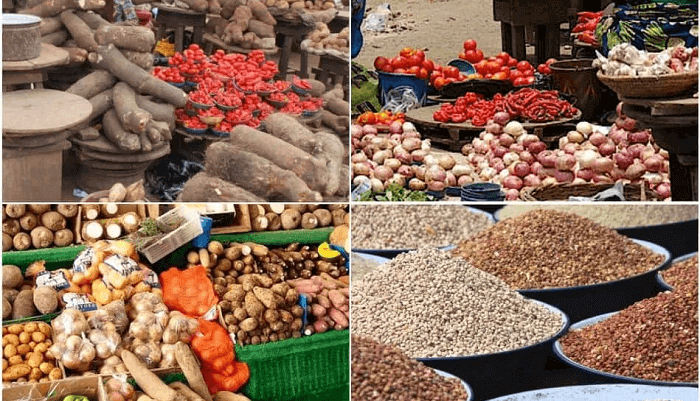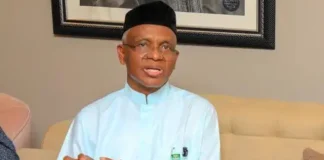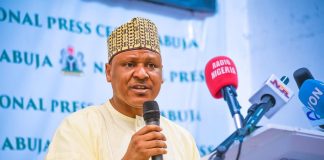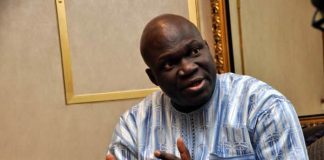🌿 Ruzu Non-Alcoholic Herbal Bitters
Ruzu Non-Alcoholic Herbal Bitters is a natural health supplement specially formulated to:
- ✅ Promote general wellness
- ✅ Detoxify the body
- ✅ Support the treatment of various ailments
Made from a powerful blend of 100% organic and medicinal herbs, Ruzu is completely alcohol-free, making it ideal for:
- 👪 All age groups
- 🌱 Health-conscious individuals
- 🌿 Anyone seeking non-alcoholic herbal remedies
Whether you're looking to boost your vitality, cleanse your system, or support healing the natural way, Ruzu Bitters offers a trusted herbal solution.
By Obiotika Wilfred Toochukwu
Food security has been severely threatened in the country due to high inflation rates, supply chain disruptions, climate change, and security challenges. This has heightened the level of poverty, hunger, and social unrest. The matter gets even worse in an era of the removal of subsidies, even food subsidies. Nigeria being a country with millions of low-income earners, many families struggle to afford basic necessities, pushing them deeper into poverty and worsening hunger and malnutrition.
Insecurity in the form of insurgency, banditry, and kidnapping disrupts agricultural activities in several regions. Farmers are displaced from their lands, and transportation routes become dangerous, hindering the movement of essential goods. This not only reduces the overall yield but also creates market shortages, driving food prices up. Someone has asked: for how long shall we bear this burden of insecurity before we take deliberate, calculated measures to end the menace? How far should the value of human life descend before we, the leaders, begin to frown at the wanton loss of lives in our nation?
Most northern states, which are regarded as the food basket of the nation, are dangerously besieged: Plateau, Benue, Adamawa, Zamfara, Bauchi, and Sokoto. As the farming season sets in, there is envisioned hunger, scarcity, and a steeper rise in the price of food. The aim of Boko Haram is to establish an Islamic state. There has been a 1979 Iranian revolution to Islamize Africa. The author of ‘Satanic Verses’, Salman Rushdie, was declared wanted, resulting in several failed assassination attempts in 1989 by the Supreme Leader of Iran, Ruhollah Khomeini.
An Iranian religious foundation offered a $1 million bounty and $3 million if an Iranian carried out the killing. The book motivated Islamic extremist bombings, killings, riots and sparked a debate about censorship and religiously motivated violence. Even when Rushdie apologised, it had a little impact.
In September 2006, pressure from Muslim leaders led the head of the Roman Catholic Church to offer a personal apology. He had quoted an obscure mediaeval text that criticised some teachings of the Prophet Mohammed as ‘evil and inhuman.’ The Food and Agricultural Organisation has hinted that about 26.5 million people in Nigeria’s population may face more hunger between June and August. The obvious link between high food prices and insecurity exacerbates as the farming season sets in. The 276 Chibok girls kidnapped from a Christian boarding school in 2014 are yet to regain their freedom and so does kidnapping, banditry and terrorism.
Recently, General TY Danjuma bemoaned the level of insecurity in the country as it hampers growth and development. As an elder statesman who recently celebrated his 86th birthday, he believes that the present leaders in the country can redeem the gory situation of things in the country. He has often testified of being a blessed man who cannot stay on the same level for more than six months without getting promoted. He has been listed by Forbes as one of the richest Africans. Theophilus Danjuma was a captain when he led other soldiers to arrest and execute Major General Aguiyi Ironsi in Ibadan a few months after the first military coup. His decision led to the brutal killing of several Igbos in the North and re-enacted the hegemony and hatred for the Igbos. Being a Christian did not stop him from currying favour from the Hausa-Fulani Muslim-dominated military, making him endure in the country’s political history. It has to be so because we tolerate anything but truth, floundering in a sea of political correctness.
When Muhammed Yusuf founded the Islamic sectarian movement, he got little or no opposition from the Northern governors. We could further view the conflict as a long-standing issue of religious violence between Muslim and Christian communities, including farmers. The killing of Abubakar Shekau did not restore peace nor the mediation of Kaduna-based Islamic cleric, Sheikh Ahmad Gumi which rather than improve safety deteriorated into more encampment by Islamic State’s West Africa Province (ISWAP). The politics of insecurity affect mainly peace-loving Nigerians. Insecurity in Nigeria is a bargain, a hedge fund, and a siege that cannot easily be resolved through conventional means. Insecurity in Nigeria is not just intractable; it is ominous.
Wisdom is better than strength and weapons of war. With all the messiness, it is essential to keep thriving. By tackling insecurity and investing in domestic food production, the country can create a more secure and stable future for its people. We still stand a chance because we are not alone in challenging situations. We were created with a love mould and not with a hate mould. Zeal, without knowledge, is a dangerous cankerworm. Fear would make us more susceptible. No matter how dark the night is, we must remain united and optimistic in our struggle for a more peaceful and secure Nigeria in which everyone will feel free to live and thrive.
Obiotika Wilfred Toochukwu, Awka.
















